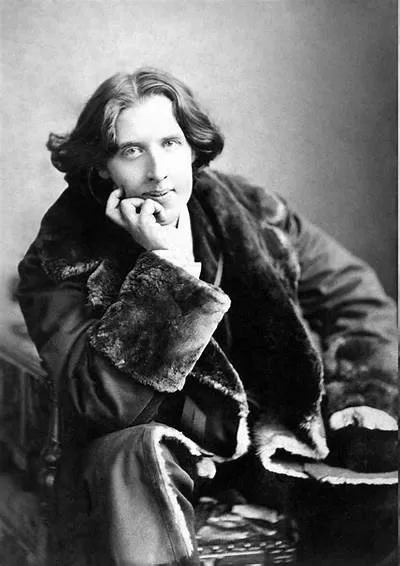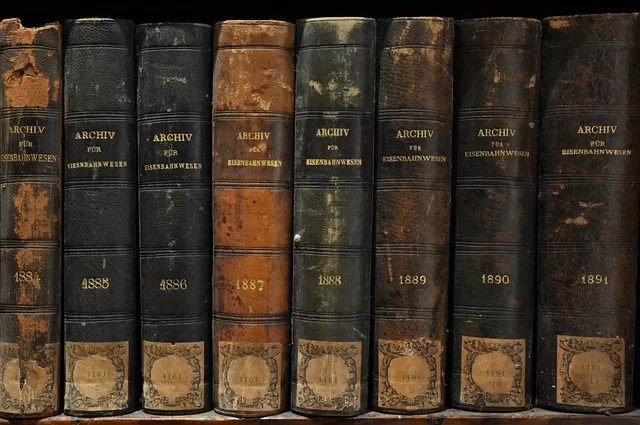16 October 1854 – 30 November 1900
Oscar Wilde, the preeminent Irish playwright, poet, and author, continues to delight audiences with his timeless wit and wisdom. His works, including “The Importance of Being Earnest” and “The Picture of Dorian Gray,” have left an indelible mark on literature. Making him one of the most celebrated literary geniuses of all time.
Wilde’s razor-sharp humor and social commentary still resonate today. His clever wordplay and satirical insights into Victorian society not only entertained but also challenged societal norms. From his iconic quotes like “I can resist everything except temptation” to his distinctive writing style characterized by wit and paradox, Wilde’s literary legacy remains an endless source of inspiration.
Read along as we delve into the enduring impact of Oscar Wilde’s works. Exploring why his wit and wisdom continue to resonate with readers around the world. We will examine his influence on subsequent generations of writers and thinkers, and uncover the lasting relevance of his observations on art, love, and society.
Join us as we celebrate the life and genius of Oscar Wilde, unraveling the secrets behind his timeless appeal and the enduring legacy he has left on the literary landscape.
Early life and education
Oscar Wilde was born on October 16, 1854, in Dublin, Ireland, to Sir William Wilde and Jane Francesca Elgee. His parents were renowned figures in their own right – his father was a successful surgeon and his mother a respected poet and nationalist. Wilde’s early life was shaped by the intellectual and cultural atmosphere that permeated his household, where discussions on art, literature, and politics were a daily occurrence.
From a young age, Wilde displayed an exceptional aptitude for languages and a keen interest in the arts. He excelled academically, earning a prestigious scholarship to Trinity College, Dublin, where he honed his skills in classical literature and philosophy. Wilde’s time at Trinity was marked by his flamboyant personality and his growing reputation as a witty and erudite conversationalist, traits that would later become the hallmarks of his literary career.
After completing his studies at Trinity, Wilde went on to the University of Oxford, where he further refined his literary talents and solidified his reputation as a leading figure in the Aesthetic movement. It was during this period that Wilde began to develop his distinctive style, blending classical influences with a modern sensibility that would come to define his work. The seeds of his future success were sown in these formative years, as Wilde’s natural talent and unwavering dedication to the pursuit of beauty and truth laid the foundation for his rise to literary stardom.

The rise of Oscar Wilde as a playwright
Oscar Wilde’s transition from a promising young scholar to a celebrated playwright was a remarkable journey that spanned the 1880s and 1890s. After completing his education, Wilde moved to London, where he quickly established himself as a prominent figure in the city’s vibrant cultural scene.
Wilde’s early literary efforts, including his poetry collections and his only novel, “The Picture of Dorian Gray,” earned him a reputation as a talented and innovative writer. However, it was his foray into the world of theater that truly cemented his legacy as one of the most influential playwrights of his era.
Wilde’s first major theatrical success came with the production of “Lady Windermere’s Fan” in 1892, a witty and sophisticated comedy that showcased his mastery of dialogue and character development. This was followed by a string of equally acclaimed plays, including “A Woman of No Importance” (1893), “An Ideal Husband” (1895), and the enduring classic, “The Importance of Being Earnest” (1895), which many consider to be his crowning achievement.
Themes and style in Oscar Wilde’s works
At the heart of Oscar Wilde’s literary genius lies his ability to craft works that seamlessly blend incisive social commentary with dazzling wit and clever wordplay. Wilde’s plays and novels are renowned for their exploration of themes that were often considered taboo or unconventional in Victorian society, such as the nature of identity, the pursuit of pleasure, and the corrupting influence of power.
One of the defining characteristics of Wilde’s writing style is his use of paradox and epigram, which he employed to challenge the prevailing social norms and expose the hypocrisies of the upper classes. His characters often engage in witty, rapid-fire exchanges that reveal the underlying tensions and contradictions of their world, while Wilde’s observations on art, love, and morality are delivered with a sharp, sardonic edge.
Wilde’s distinctive writing style was further enhanced by his mastery of irony and his ability to subvert the traditional narrative structures of the Victorian era. His works are marked by a sense of playfulness and a refusal to adhere to conventional literary tropes, as Wilde sought to push the boundaries of what was possible in the realm of fiction and drama.
Oscar Wilde’s famous plays and novels
Throughout his illustrious career, Oscar Wilde produced a body of work that has endured as some of the most celebrated and influential literary achievements of the late 19th century. His plays, in particular, have become timeless classics, renowned for their wit, social commentary, and enduring relevance.
One of Wilde’s most famous and beloved works is “The Importance of Being Earnest,” a delightful comedy of manners that parodies the social conventions and moral hypocrisy of the Victorian upper class. The play’s central characters, Jack and Algernon, engage in a series of elaborate deceptions and mistaken identities, ultimately revealing the absurdity of the societal norms they seek to uphold. Wilde’s masterful use of language and his keen eye for the foibles of the aristocracy make “The Importance of Being Earnest” a timeless classic that continues to delight audiences and readers alike.
In addition to his plays, Wilde’s only novel, “The Picture of Dorian Gray,” has also become a cornerstone of his literary legacy. This dark and alluring work explores the themes of beauty, morality, and the corrupting influence of vanity and hedonism. Wilde’s vivid, richly descriptive prose and ability to craft complex, multifaceted characters have made “The Picture of Dorian Gray” a beloved and influential work of Gothic fiction, inspiring countless adaptations and interpretations over the decades.
The importance of wit and humor in Oscar Wilde’s writing
At the heart of Oscar Wilde’s literary genius lies his unparalleled mastery of wit and humor. Wilde’s works are renowned for their clever wordplay, sharp social commentary, and unapologetic embrace of the absurd, all of which have contributed to his enduring popularity and critical acclaim.
Wilde’s wit was not merely a stylistic flourish; it was a tool he wielded with precision to challenge the social norms and moral hypocrisies of Victorian society. His characters engage in witty banter and deliver cutting, paradoxical observations that expose the underlying tensions and contradictions of their world. From the epigrams of “The Importance of Being Earnest” to the sardonic musings of “The Picture of Dorian Gray,” Wilde’s works are infused with a sense of playfulness and a refusal to take the world too seriously.
However, Wilde’s use of humor was not merely a means of entertainment; it was a way of illuminating the complexities of the human condition and the absurdities of social conventions. His works often explore the darker aspects of the human experience, such as the corrupting influence of vanity and the consequences of moral transgressions, but they do so with a deft touch that allows the reader to engage with these themes on a deeper level. Wilde’s ability to balance humor and insight, wit and wisdom, has made him one of the most beloved and influential writers of his era, and his legacy continues to inspire and delight readers the world over.
Oscar Wilde’s impact on society and literature
The enduring impact of Oscar Wilde’s literary works extends far beyond the realm of the written word, as his influence can be seen in the social and cultural landscape of the modern era. Wilde’s bold, unconventional approach to art and life challenged the rigid social norms of Victorian society, paving the way for more progressive and inclusive attitudes towards identity, sexuality, and the role of the individual in shaping their destiny.
Wilde’s works, with their unapologetic exploration of taboo themes and their celebration of the power of the individual, have become touchstones for marginalized communities and social movements. His championing of the Aesthetic movement, which emphasized the primacy of beauty and self-expression over utilitarian concerns, has had a lasting impact on the arts, inspiring generations of writers, artists, and thinkers to embrace their creativity and individuality.
Beyond the realm of literature, Wilde’s influence can be seen in the way we approach and engage with the world around us. His razor-sharp wit and his ability to distill complex ideas into pithy, memorable aphorisms have become a part of our cultural lexicon, with his iconic quotes and turns of phrase permeating everything from political discourse to popular culture. Wilde’s enduring legacy as a literary giant and a social provocateur has cemented his place as one of the most influential and enduring figures of the modern era, a testament to the power of his words and the timeless relevance of his ideas.
Oscar Wilde’s infamous trial and imprisonment
The latter years of Oscar Wilde’s life were marked by a tragic and highly publicized downfall, as the renowned playwright and author faced a series of devastating personal and legal challenges that ultimately led to his imprisonment and the destruction of his once-flourishing career.
In 1895, Wilde was arrested and charged with “gross indecency,” a vague and broadly interpreted law that was used to prosecute homosexual acts in Victorian England. This arrest was the culmination of a bitter feud between Wilde and the Marquess of Queensberry, the father of Wilde’s lover, Lord Alfred Douglas. The ensuing trial and Wilde’s subsequent conviction and imprisonment for two years of hard labor were a devastating blow to the writer, who had previously enjoyed immense fame and critical acclaim.
Wilde’s incarceration and the public humiliation he endured during this period had a profound impact on his literary output and personal well-being. The harsh conditions of the prison system, combined with the emotional trauma of his downfall, took a heavy toll on Wilde’s health and spirit. However, even in the darkest moments of his life, Wilde’s wit and insight remained undiminished, as evidenced by his poignant and deeply moving work, “De Profundis,” a letter written during his imprisonment that reflects on the nature of love, suffering, and the human condition.
The legacy of Oscar Wilde in modern literature and popular culture
Despite the tragic circumstances that marked the latter years of his life, Oscar Wilde’s enduring legacy as one of the most influential and beloved writers of the modern era remains firmly intact. His works continue to captivate and inspire audiences around the world, with his plays, novels, and poems enjoying a sustained popularity that has only grown stronger with time.
Wilde’s impact on the literary landscape is undeniable, as his distinctive style, thematic preoccupations, and uncompromising approach to art and life have influenced countless writers, playwrights, and thinkers who have followed in his footsteps. From the subversive social commentary of George Bernard Shaw to the flamboyant, stylized prose of Oscar Wilde’s fellow Aesthetes, the imprint of Wilde’s genius can be seen in the works of countless literary luminaries throughout the 20th and 21st centuries.
Beyond the realm of literature, Wilde’s legacy has also permeated popular culture, with his iconic quotes, memorable characters, and distinctive persona becoming embedded in the collective consciousness of audiences worldwide. From the silver screen adaptations of his plays to the countless references to his wit and wisdom in television, film, and the arts, Wilde’s enduring influence has ensured that his name and his work remain an integral part of the cultural landscape, inspiring and delighting new generations of admirers with each passing year.
Celebrating the enduring legacy of Oscar Wilde
As we reflect on the life and legacy of Oscar Wilde, it becomes clear that his influence and impact on the literary and cultural landscape of the modern era are truly unparalleled. From his early days as a precocious young scholar to his rise as a celebrated playwright and author, Wilde’s journey was marked by a singular dedication to the pursuit of beauty, truth, and the power of the individual to shape their destiny.
Through his works, Wilde challenged the rigid social conventions of Victorian society, championing a more progressive, inclusive, and nuanced understanding of identity, sexuality, and the human experience. His masterful use of wit, paradox, and irony not only entertained and delighted his audiences but also illuminated the complexities and contradictions that lay at the heart of the human condition.
Even in the face of personal tragedy and public humiliation, Wilde’s spirit and creative genius remained undiminished, as evidenced by the poignant and deeply moving works he produced during his final years. Today, as we celebrate the enduring legacy of this literary giant, we are reminded of the timeless power of his words, the enduring relevance of his ideas, and the enduring inspiration he continues to provide to writers, thinkers, and audiences the world over. Oscar Wilde’s legacy stands as a testament to the transformative power of art, the enduring triumph of the human spirit, and the timeless appeal of a truly remarkable literary genius.

















































































































[…] we reflect on the life and legacy of Oscar Wilde, we are reminded of the enduring power of art, the resilience of the human spirit, and the profound […]